Our interactive list offers detail on the final 100 who made the cut

The regulator said Lancashire had performed poorly against the 18 weeks to treatment target since April 2013, prompting it to investigate whether the trust had breached its licence.
The trust, which runs Chorley and South Ribble Hospital and the Royal Preston Hospital, has also exceeded its clostridium difficile infection trajectory for the year.
Mark Brearley had led the provider since May 2011. He was at the helm when the trust was included in NHS England medical director Sir Bruce Keogh’s review of trusts with high mortality rates earlier this year.
When the Keogh review was published this summer, it concluded that staffing on some wards at the trust were “insufficient to meet the basic needs of patients”. It also found that the nursing workforce needed “more leadership, direction and support to achieve acceptable standards of care”.
4.41pm Our sister title Nursing Times reports that a dip in births following an 11-year boom must be seized upon by ministers if England’s long-running midwife shortage is to come to an end chief executive of the Royal College of Midwives Professor Cathy Warwick has said.
4.31pm Some interesting reader comments have been added to our story about pooled budgets between councils and commissioners:
“Pooled budgets, great! Shared risk on community services, great! One-way transfer of funds to local government, no way, anyone who tries this needs to have very assertive push-back from the NHS. Many (Tory) councillors think that is exactly what the funding is for, don’t let them have it!”
“Local councils are cash strapped, and they are looking for an easy way out, I would echo the sentiments above, and particularly in the context of Tory Local Authorities who promote their ability to reduce their council tax. I have managed pooled budgets, and it is possible for them to really make a difference, but you need safeguards. One way transfers will not work, and will put the local NHS under more presssure in subsidising council tax reductions.”
“Caution? Absolutely! A lot of joined up working can be done through intelligent use of well-planned joint investment without any of the paraphernalia of pooled budgets or one-way traffic. I’ve worked long enough in joint planning to know that:
- many councillors look at the NHS as a nice little pot of gold
- many NHS folk have little understanding of the pressures and statutory responsibilities Local Government face. Clear delineation of funding sometimes has its benefits!”
3.43pm Here’s a digest of various leaders’ contributions to the G8 summit on dementia today:
David Cameron said: “It doesn’t matter whether you’re in London or Los Angeles, in rural India or urban Japan – dementia steals lives, it wrecks families, it breaks hearts and that is why all of us here are so utterly determined to beat it.
“In generations past, the world came together to take on the great killers. We stood against malaria, cancer, HIV and AIDS and we are just as resolute today. I want December 11th 2013 to go down as the day that the global fight-back began.”
In his closing address to the summit, Health Secretary Jeremy Hunt will say: “Nelson Mandela once said that ‘it always seems impossible until it’s done’. 20 years ago, fear, ignorance and stigma surrounded HIV and AIDS – but we know from this that major diseases can be made manageable, even preventable, with sufficient political will.
“Dementia costs an astounding US$604 billion every year, about one per cent of the world’s GDP. But this isn’t just an economic problem – the impact this disease has, not just on those diagnosed with dementia, but also on their families, their carers and their friends, cannot be measured.
“Already, great strides are being made in understanding this disease and how we might prevent it. Today we have taken a major step forward in agreeing action to tackle this debilitating disease on a global scale – to push further, to be able to provide treatments and cures so that future generations can face a diagnosis of dementia with confidence, not fear. Let’s show future generations we were up to the challenge.”
Dr Margaret Chan World Health Organisation director-general said: “WHO warmly welcomes the aims and outcomes of this summit, with its ground-breaking proposals to stimulate research and development to catch up with a runaway human tragedy.
“WHO’s priority will be to help countries, especially in the developing world, cope with their rapidly ageing populations and escalating numbers of people with dementia.”
Yves Leterme deputy Secretary-General of the OECD said: “We need to modernise the innovation model in health in order to accelerate innovation in dementia prevention and care. The OECD supports the UK government efforts to encourage multi-stakeholders international collaboration to address dementia and welcomes the UK decision to appoint a Global Dementia Innovation Envoy. We hope that through our combined efforts we will be able to better deal with the human, social and economic cost of dementia.”
3.33pm Here is Jeremy’s Hunt full speech delivered at the introduction to the G8 summit on dementia.
“Ladies and gentlemen,
It is fantastic to see you all here today for the world’s first G8 Dementia Summit.
And it is right we should be here. As life expectancy goes up, our generation has a unique challenge: will those extra years at the end of our lives be ones we can look forward to with anticipation - or will they be ones we end up dreading?
One in three of us will get dementia. And if we don’t do better, for one in three those later years could be years of agony, heartbreak and despair - not just for those of us with the condition, but for our families, friends and loved ones too.
9 years ago Britain hosted the G8 in Gleneagles in Scotland. And we faced up to a different health challenge - HIV/AIDS. We did a brave and wonderful thing, declaring that anti-retroviral drugs should become available to all who needed them. Thanks to that, we have turned the global tide in the battle against AIDS.
Now we need to do it again.
We will bankrupt our healthcare systems if we don’t. Here in the UK the cost of dementia is £23 billion and globally it is approaching $600 billion. One in four people in UK hospitals have dementia, but the costs extend well beyond hospital care into social care, community care and the opportunity costs for carers.
But the real reason to do something about dementia is not financial.
The real reason is human. Everyone deserves to live their final years with dignity, respect and the support of loved-ones. That was the dream of universal healthcare coverage when we founded the NHS in the UK 65 years ago. Now with an ageing population we need to reinvent the model.
So let us focus on three areas of action for this summit.
Firstly to redouble our efforts to find a drug that can halt or reverse the brain decay caused by dementia. We thought we could never combat HIV. But just 9 years after the Gleneagles summit and with the involvement of some of Britain’s best universities, we are talking about a potential vaccine. We need that spirit of scientific endeavour for dementia and Alzheimer’s as well - and there is some fantastic work going on in our universities and research laboratories.
Secondly we need to improve diagnosis rates. In this country, despite our brilliant NHS, less than half of dementia patients get a diagnosis. Too many people - even some doctors - think there is no point. But with a diagnosis we can give out medicines that help some people; we can put in place support for families; we can encourage lifestyle change - all of which can mean people live at home happily and healthily for many years longer.
Thirdly let’s fight the stigma around dementia in society. When I was born in the 1960s, people didn’t like talking about cancer. The first step to improving treatment was to make it normal - we need to do that for dementia. So following the inspiring programme in Japan, we are trying to recruit one million dementia friends in England - people who know the basics and can be ambassadors for fighting stigma.
Right here we have the A team. Health ministers, science ministers, pharmaceutical companies, researchers, voluntary organisations, the OECD and the WHO. And we have some even more special guests: people who themselves have dementia and have had the courage to come today. Let us recognise them.
Let us today match their courage by daring to aim big. By showing future generations we were up to this challenge, ready to do what it takes to harness science, research and humanity to turn one of humanity’s greatest threats into one of its greatest achievements.
Thank you.”
3.29pm Jeremy Hunt also said that comparisons have been made between cancer funding and dementia funding. He said that cancer only received significant funding once people “stopped sweeping the issue under the carpet”.
3.27pm A press conference is underway at the G8 summit on dementia. Jeremy Hunt has responded to a question from the audience about what is currently being done to help dementia sufferers. He said that “the amount of money going into research is too little” and the government have doubled it over this parliament and will double it again through the next parliament.
3.12pm A new ‘Health Informatics’ course from the National Skills Academy will give young health apprentices in the north west experience within a hospital’s admin and finance department.
The Academy will be working with Skills for Health Academy North West, Information Skills Development, City of Liverpool College and Local NHS Trusts, to support the delivery of this new Health Informatics Cadet Apprenticeship.
Candace Miller Director of the National Skills Academy for Health said: “High quality information when and where it is required within the NHS has never been more important for supporting clinicians and patients. We already have a number of successful apprenticeship programmes underway - but often with a focus on clinical, patient-based roles.
“Increasingly, young people who decide they don’t want to take a more ‘traditional’ route into employment – such as further and higher education – are looking to apprenticeships as a practical way of learning new skills, that will dramatically improve their chance of permanent employment at the end of their initial course. There is also a very a ‘real appeal’ of being able to ‘earn while they learn’, rather than amassing debts whilst studying – an option that simply might not be viable for many of them.”
The first cohort of local cadets is just about to complete their six week college based induction to the qualification which crosses two curriculum areas - Healthcare and ICT. The cadets will go on to be placed in the information management departments of NHS organisations across Cheshire and Merseyside for four days of the week with one day in college.
2.24pm The thinktank IPPR has published a report on uptake of digital innovation in health and social care, launched yesterday with Google and the shadow chief secretary to the treasury, Chris Leslie.
IPPR says: “Given the rapid pace of technological change and take-up by the public, it is a question of when not if public services become ‘tech-powered’. This new paper asks how we can ensure that innovations are successfully introduced and deployed.”
2.02pm Editor-in-chief Alastair McLellan gives his analysis of the HSJ100 list.
1.53pm Mandatory budget pooling with councils will improve care outside hospital, local commissioning leaders believe. However, they believe it is likely to mean NHS funds are used by councils to subsidise their non-health functions and could damage quality in hospitals.
The HSJ clinical commissioning group leader barometer survey, carried out with Marie Curie Cancer Care, reveals more than eight in 10 respondents believe pooled budgets will mean their funding helps to pay for councils’ services outside of health and care.
The pooled budget initiative was announced by the government in July and will see £3.8bn of NHS funding shared between CCGs and local authorities in 2015-16. It is unclear exactly who will hold the money and how it will be controlled.
1.47pm There is strong support among local leaders for changes to the nine-month-old commissioning system, including support arrangements and NHS England’s responsibilities.
In the HSJ clinical commissioning group barometer survey, run with Marie Curie Cancer Care, 28 per cent said interactions with their commissioning support unit were unhelpful or very unhelpful.
This is an increase from 6 per cent in answer to the same question in January and 7 per cent in April.
1.40pm Health chiefs have suspended a specialist liver surgeon linked to the “avoidable deaths” of eight patients he operated on in south Wales.
Consultant surgeon David Paul Berry, based at University Hospital Wales, has been banned by the General Medical Council from doing any further liver surgery.
A professional review of 31 of his patients while with the Cardiff and Vale University Health Board, found that 10 went on to die, and “eight of those 10 deaths were avoidable.”
1.37pm Flawed local regulation of midwifery services can place the lives of mothers and babies at risk, according to a report published today by the health service ombudsman.
The report summarises three investigations by the ombudsman into care standards following the deaths of three babies and a mother at University Hospitals of Morecambe Bay Foundation Trust and notes that statutory supervision of midwives consistently failed to identify poor practice.
The report concludes that persistent failure to answer affected families’ questions and a failure to learn from poor midwifery care were common themes across all of the cases.
1.05pm And here’s the interactive list of all the 100.
1.04pm Today we announce the HSJ100, a rundown of the 100 most powerful people in health.
Here’s some twitter reaction to the list so far:
“The #HSJ100 is out! The NHS equivalent of #XFactor. A bit of annual seasonal fun. Enjoy!”
“With all respect to my boss, still sad to see more Davids than women at the top of the list… ”
“Great to see 15 GPs on the #hsj100”
12.51pm The target for GPs to guarantee patients an appointment within 48 hours should be restored to help ease the pressure on accident and emergency departments, shadow health secretary Andy Burnham said.
Mr Burnham indicated that reintroducing the 48-hour pledge, which was scrapped within months of the coalition taking office, could be put before the Commons for a vote next week.
He was speaking as health workers revealed the pressures on A&E services at a meeting organised by Labour in Parliament.
Mr Burnham said: “It is now clear that 2013 has been the worst year in a decade in A&E. The pressure that we have seen all year hasn’t abated. In recent weeks it has been running at winter levels before winter has begun in earnest.
12.38pm Here’s some more detail on the CQC’s dementia inspection announcement:
The Care Quality Commission is to undertake unannounced inspections of 150 care homes and hospitals to review the care of people with dementia in England.
The news comes on the day the prime minister is hosting a G8 summit in London to develop an international plan to combat the condition.
CQC chief executive David Behan said it will be the first time the regulator has specifically reviewed care services for people with dementia. He said the CQC’s findings would create a national picture of “what works well and where improvements are required”.
The review will focus on how people with dementia are helped to maintain their physical and mental wellbeing, how avoidable hospital admissions can be reduced via effective care, and how people with dementia are supported as they move between services.
12.36pm The chair of Tower Hamlets Clinical Commissioning Group, the first to introduce a “mutual assurance process” with NHS England, has said the process has helped to join up commissioning.
This follows the first major survey of CCGs, which found only 19 per cent of leaders thought NHS England worked effectively with them in its role as the commissioner of primary care.
Tower Hamlets and NHS England’s London regional team have overseen monthly meetings between primary, secondary and specialist commissioners for the past six months.
12.34pm Landlords came close to closing a GP surgery amid a lease renewal blunder involving NHS Property Services and NHS England, HSJ has learned.
The situation was only resolved when NHS England took on a new 12-month lease for the building, which is used by two GPs in Wednesbury, in the West Midlands. A source close to the incident said only an hour remained until the previous lease expired on 14 November.
A second source confirmed the lease was signed “very late in the day”, with the landlord threatening to lock the building.
12.32pm Listen to the incoming NHS England chief executive Simon Stevens, who will replace Sir David Nicholson in April, talk about innovation and the future of healthcare in a speech in Qatar yesterday.
Among his comments at the World Innovation Summit for Health were that for health systems to thrive, they need to become “the exact opposite of healthcare as the world’s largest cottage industry - which is what we have got in most countries”.
Mr Stevens, currently UnitedHealth president of global health, and a former advisor in the Department of Health and 10 Downing Street, also said there was a large gap between doctors’ knowledge that health services’ quality varies, and the public who often believe it does not.
11.25am British female scientists working to cure the world’s most infectious diseases receive far less funding than their male peers, according to research reported by The Times.
11.06am The Times reports a poll suggesting that nearly 80 per cent of disabled people polled would like the law changed to enable the terminally ill to end their lives legally.
Almost 80 per cent of those interviewed by YouGov, on behalf of Dignity in Dying, believe that someone who helps a terminally ill friend or family member to die should not face prosecution.
However, support for a change in the law falls to a third if the person involved suffers from a non-terminal but incurable condition.
11.04am The Telegraph also reports that middle-aged depression could be the result of a concussion in young adulthood in some cases, according to research published in the journal Biological Psychiatry.
Blows to the head can lead to an overreaction by the brain’s immune cells and create excessive inflammation, which scientists say is linked to depressive symptoms.
11.02am The proportion of Year 6 primary school children who are obese or overweight has fallen for the first time in six years, according to a new report by the Health and Social Care Information Centre.
A third (33.3 per cent) of Year 6 pupils measured for the National Child Measurement Programme in 2012-13 were obese or overweight, compared to 33.9 per cent in the previous year.
This proportion, which is still higher than in 2006-07, is the first recorded fall for Year 6 in the seven year history of the NCMP, which measures the prevalence of obese, overweight, healthy weight and underweight children in reception and Year 6.
In reception, the prevalence of obese and overweight children (which peaked in 2009-10), also fell in 2012-13 compared to the previous year and remains lower than seven years ago.
HSCIC chair Kingsley Manning said: “These figures provide clear insight into the weight of the next generation on both a national and local scale.
“The first drop in obesity prevalence among Year Six stands out, although we will need to see what the numbers say in future years to determine if this is the start of a decline or more of a blip.
“Today’s figures reflect an element of the health of our nation’s children and today’s report isn’t just of interest to people that make health policy, it will be of note to many parents in England.”
10.57am The Guardian reports that the Alzheimer’s Society is calling for a sevenfold increase in research funding into dementia.
Director of research and development at the Society Dr Doug Brown said that global dementia spending should be on a similar footing to cancer investment.
According to the Alzheimer’s Research trust the UK spends £590m on cancer research in comparison to £50m on dementia.
10.52am The Daily Telegraph reports that a new dementia “brain scanning” technique will be introduced in Britain. The scan will allow doctors to rule out Alzheimers in a patient or the possibility that it will develop within five years, and will improve the accuracy of diagnoses.
The test, which was developed by scientists in London, involves giving a patient a small amount of a radioactive substance which will allow amyloid plaques to show up in a brain scan.
10.48am The Social Care Institute for Excellence has announced a partnership with the new Salford Institute for Dementia on the day of the G8 summit on dementia.
SCIE’s chair Lord Michael Bichard said: “G8 members must remember the essential role of social care and support for people with dementia, their family and friends. Research and guidance in this area is as crucial as medical research into the causes of dementia.
“That is why today SCIE is relaunching our updated Dementia Gateway, and announcing our partnership with the new Salford Institute for Dementia.
“SCIE’s Dementia Gateway is a unique resource. It brings together the research about what works, interprets that knowledge into practice advice, and presents guidance in accessible ways including short films, e-learning materials and key messages. It is essential reading for everyone who wants to understand dementia, including care and health staff, and the general public.
Speaking about SCIE’s partnership with the new Salford Institute for Dementia Lord Bichard said: “SCIE is delighted to be working with the new Salford Institute for Dementia. We will share the knowledge and resources developed by the new institute through our Dementia Gateway.”
10.33am Age UK and the Race Equality Foundation have joined forces to call for a focus on dementia in black and minority ethnic communities.
The charities say that a growing body of evidence suggests that african-caribbean and south asian UK communities are at higher levels of risk than the indigenous white population, but despite the substantial increases in the number of older people from these groups in the UK, policy guidance on black and minority ethnic older people has not found its way into practice.
The organisations also say that there appears to be limited understanding of dementia within black and minority ethnic communities themselves, with poor knowledge of available services and significant stigma surrounding the illness.
Responding to the particular challenges presented by the ageing minority ethnic population, the Race Equality Foundation and Age UK have are today publishing a short report presenting the learning from a national conference looking at dementia within these communities that took place in November.
Jabeer Butt, deputy chief executive at the Race Equality Foundation said the report is “a welcome contribution to the research and practice guidance surrounding dementia, and its focus on black and minority ethnic communities is timely, considering the increasing number of black and minority ethnic people in the UK who are now over the age of 65.”
Caroline Abrahams charity director at Age UK said: “Health and social care providers must be able to meet the needs of our increasingly ethnically and culturally diverse ageing population. We welcome the new research by the Race Equality Foundation and its focus on dementia in black and minority ethnic communities, and we were pleased to join with them in putting on an event and in producing the learning report.
“Raising awareness and ensuring that dementia care and support services – including those provided by voluntary organisations such as local Age UKs – are culturally appropriate, accessible and fully inclusive of older people from black and minority ethnic communities, their carers and families, is vital if we are to meet the needs of us all as we get older”.
10.19am At today’s G8 dementia summit, Alzheimer’s Society chief executive Jeremy Hughes will pledge to spend at least £100m on dementia research in the next decade.
This additional research funding will be used to try and drive forward research into the prevention and cure of Alzheimer’s disease and other forms of dementia, but also into the best form of treatment and support for those facing the daily challenges of living with dementia today.
Jeremy Hughes chief executive of Alzheimer’s Society said: “For the past forty years Alzheimer’s Society has led the fight against dementia. We are pushing the boundaries to bring life-changing research to prevent, care and ultimately cure dementia closer to people with the condition, but we can’t do this alone. We urge governments and organisations worldwide to collaborate, think long-term and make meaningful promises to combat dementia now.”
10.06am The Economic and Social Research Council has announced that, along with the National Institute for Health Research (NIHR) it will be awarding £20m to six research projects with the aim of increasing understanding of dementia.
The research will look at how better to prevent dementia, and improve the quality of life of those with dementia and their carers.
There are currently 44 million people in the world living with dementia, and by 2050 this number is set to treble to 135 million.
“Dementia is a major challenge for our society, and it is imperative to develop an understanding of the needs of those with dementia, their families and the communities they live in,” ESRC chief executive Paul Boyle commented.
“These six funded projects will provide much-needed evidence for changes in future health and social care policy, as well as practical guidance for charities and third sector organisations working with sufferers of dementia,” he added.
9.51am The Care Quality Commission has announced today that it will be carrying out a national review of dementia care. 150 care homes and acute hospitals will be inspected to review how people with dementia are cared for in England.
The teams will assess what is working well and what needs improvement. This announcement coincides with the G8 summit on dementia taking place today.
David Behan chief executive of the CQC said: “There is a real need to explore why people with dementia may not be receiving high quality care, as well as how the different services work together.
“This is the first time that CQC has undertaken a review, which specifically looks at the care services that people with dementia use and rely on. It will address the key issues that these people face, such as why admissions to hospital from care homes are higher for people who have dementia compared to those who do not have the condition.”
7.00am Good morning and welcome to HSJ Live. Clare Gerada, former chair of the Royal College of General Practioners, says general practice offers the corporate world a great equal opportunity model, with its flexible working patterns, career breaks, mentorship and return-to-work schemes.
She criticises quotas as means by which women can rise to leadership positions in the workplace.
“How naive to think that quotas will cause anything but resentment if leaders are seen as being in their positions by default. All around the globe, brilliant women are at the top, or rising to the top, of their professions on merit, not as a result of quotas,” she argues.



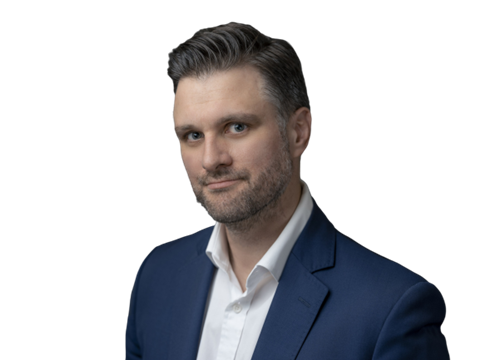



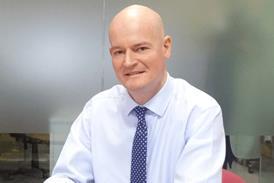

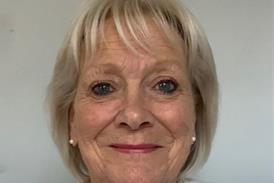
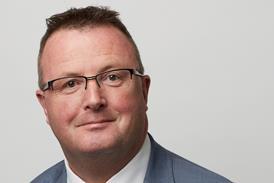
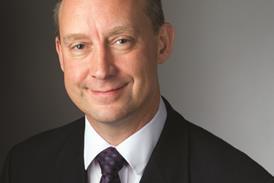
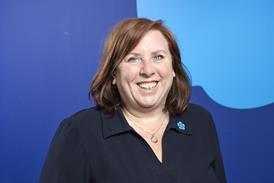










1 Readers' comment